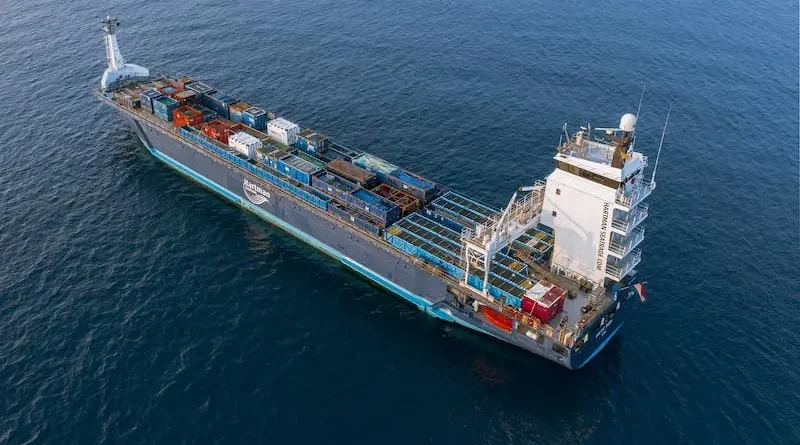Houthi Forces Seize Israeli-Linked Vessel
In a bold maritime maneuver that has sent ripples through global shipping lanes, the Houthi rebels have reportedly commandeered a cargo ship affiliated with Israeli interests. The Galaxy Leader, a vessel sailing under the Bahamian flag, was navigating the crucial waters of the Red Sea when it fell under the sudden control of the Iran-aligned Yemeni faction.
The seizure of the Galaxy Leader, confirmed by officials on Sunday, marks a critical juncture in the volatile Red Sea region’s security situation. The incident, involving over two dozen crew members from diverse nationalities including Bulgaria, the Philippines, Mexico, and Ukraine, has not only spotlighted the complexities of international shipping but has also underscored the increasingly transnational scope of the Israel-Hamas conflict.
Israeli authorities have swiftly denounced the hijacking as an act of aggression, drawing a direct line to Iranian support of the Houthi insurrection. Prime Minister Benjamin Netanyahu’s office has labeled the event an “Iranian act of terror,” amplifying the gravity of the situation on an international stage.
The vessel’s intricate ownership web, traced back to Ray Car Carriers—a company established by Abraham “Rami” Ungar, one of Israel’s wealthiest individuals—illustrates the often convoluted nature of maritime commerce. Despite Israeli assertions of the ship being British-owned and Japanese-operated, its connections to Israeli enterprise have been highlighted as a probable motive behind the Houthi’s actions.
The United States’ involvement paints a broader strategic picture, with U.S. defense officials corroborating the details of the takeover. The bold strategy employed by the Houthis—descending from a helicopter onto the ship—reflects a higher degree of militaristic capability and intention to target maritime assets.
This development is notably disruptive to the Red Sea corridor, a pivotal conduit for international trade and energy supply. The region, stretching from Egypt’s Suez Canal to the Bab el-Mandeb Strait, is a lifeline for global commerce, making the security of these waters a paramount concern for naval forces, notably the U.S. Navy, which has been vigilant in the area due to the ongoing Israel-Hamas war.
Recent U.S. military engagements have included the interception of missile and drone threats emanating from Yemen, believed to be on course for Israel or posing risks to American ships. These incidents not only highlight the Houthis’ reach but also their potential to disrupt international navigation and trade.
The international community watches closely as the Galaxy Leader’s tracking systems went dark—a move often associated with evasive tactics or clandestine operations. With no immediate evidence of illicit cargo, the focus remains on the vessel’s strategic significance and the implications of its capture.
As fears of a broader regional conflict loom, the Red Sea has become an arena for power plays extending beyond the confines of national borders. The Houthi threat to Israeli shipping interests, explicit in its resolve to target vessels connected to Israel, adds a new layer to the geopolitical chessboard.
The hijacking incident, occurring approximately 150 kilometers off Yemen’s Hodeida coast, near Eritrea, has cast a spotlight on the precarious balance of peace and commerce in the region. Maritime operators are on high alert, and international trade operations face renewed scrutiny amidst escalating regional hostilities.
This event marks the latest chapter in a series of maritime disturbances that have plagued the Red Sea since 2019, following Iran’s divergence from the nuclear agreement with world powers. With the intensification of Israeli military campaigns against Hamas and the recent unprecedented assault on southern Israel, the potential for this maritime conflict to spiral into a broader confrontation is a concern that cannot be ignored.
For industry observers and geopolitical analysts alike, the hijacking of the Galaxy Leader is a stark reminder of the fragile state of maritime security in a world where trade routes and warzones intersect.

